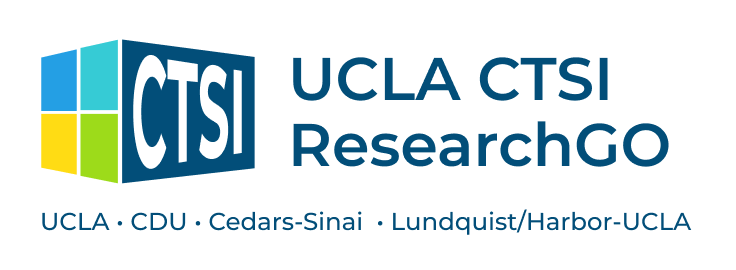- Safety Reporting to the IRB
- UCLA Safety Committees
- Safety Committee Resources
- Medical Center and Campus Safety Training
Safety Reporting to the IRB
UCLA requires researchers to report any unanticipated problems involving risks to subjects or others in a timely manner.
Determining which adverse events or problems need to be reported can sometimes be tricky. Please use the Adverse Events Decision Tree to help you decide whether an adverse event should be reported to the IRB. We encourage you to learn more about safety reporting to the IRB. Please see the following materials for additional guidance:
UCLA Safety Committees
The Office of Research Administration (ORA) provides administrative support to committees that focus on specific types of hazards as detailed below.
Chemical and Physical Safety Committee (CPSC)
The CPSC focuses on chemical and physical hazards in research laboratories and is mandated to develop, recommend, update and maintain policies and procedures applicable to chemical and physical health and safety practices at UCLA in order to promote safe research practices. The CPSC has representation from the School of Medicine, the School of Dentistry, the School of Engineering, EH&S, and the Office of Legal Affairs.
Institutional Biosafety Committee (IBC)
The IBC is responsible for establishing, monitoring, and enforcing policies and procedures involving hazardous biological materials and recombinant/synthetic nucleic acids to meet applicable federal, state, local and institutional regulations and guidelines.
Institutional Review Entity (IRE) for Dual Use Research of Concern
The IRE is responsible for conducting reviews of research for dual use potential.
Office of the Vice Chancellor for Research Safety Oversight Committee (OSOC)
The OSOC is charged with promoting a safe working environment in all research and teaching laboratories on campus and serves as a mechanism for communication between existing campus Safety Committees on topics of mutual safety concerns. The Committee advises and reports to the Chancellor through the Vice Chancellor for Research.
Radiation Safety Committees (RSC)
The ORA-RSC staff provide administrative support for the Radiation Safety Committee (RSC) and subcommittees: Academic Radiation Safety Committee (ARSC), Clinical Operations Radiation Safety Committee (CORSC), Medical Radiation Safety Committee (MRSC), and Radioactive Drug Research Committee (RDRC).
UCLA Office of the Human Research Protection Program (OHRPP)
Post Approval Reporting - The Principal Investigator is responsible for submitting to the IRB ongoing reports of events that may adversely affect the safety of participants or the conduct of the research, and any information relevant to the conduct of the approved research. The types of events and information that may need to be reported to the IRB include, but are not limited to:
- Adverse Events
- Violations, Deviations, and Incidents
- Updated Study Safety Information
An unanticipated problem is an event or outcome that meets the following criteria: 1) unexpected; 2) related or possibly related to participation in the research; and 3) places subjects or others at a greater risk of harm than was previously known or recognized. All unanticipated problems need to be reported to the IRB via webIRB, though not all adverse events, violations, incidents or deviations are unanticipated problems. For examples, please see the guidance document.
UCLA Environment, Health & Safety
Training & Outreach. In-class and online training courses are available to assist you in meeting regulatory training requirements along with videos, publications and other resources to help promote safety on campus.
David Geffen School of Medicine Research Safety
Standard Operating Procedure (SOP) Template Library with Sample Procedures. SOP templates are provided to help research groups update the SOPs required for safety compliance. The templates have sample procedures with the level of detail required to determine the hazard level. Edit the SOP template to reflect your laboratory-specific procedures.
All sections on the SOP template must be completed. Please refer to the corresponding Safety Data Sheet (SDS) from the same manufacturer of the chemical to add important information on the SOPs per the manufacturer's recommendations. All SOPs must be approved and signed by the principal investigator, and then reviewed and signed by the laboratory workers and documented in the Laboratory Safety Manual binder.
If you need to write an SOP for a chemical not listed below, you may customize the universal SOP template. Alternatively, you can customize the chemical-specific SOPs on the UCLA EH&S site to match your laboratory chemical-specific operations. Do not cut and paste contents or certain sections from the SOPs without careful review, as the SOPs in the library must be customized for your specific laboratory operations.
Environmental Health & Safety Training
Please review the Required Safety Training for All Campus Staff Working in the Medical Center. Go to the EH&S Training and Outreach to access training information. Upon completion, your compliance will be automatically updated on the university’s learning management system. UCLA employees working in healthcare settings are required to complete a medical evaluation, including TB surveillance and vaccinations, with the Occupational Health Services Program.
Bloodborne Pathogens (BBP)
The Bloodborne Pathogens class (both initial and refresher courses) presents the requirements of the California Bloodborne Pathogen Standard, including methods of protecting against exposure. It is required for all employees working with potential exposure to Human blood (whole, components, products). Bloodborne Pathogen training must be renewed annually.
Shipping of Biological Materials
The process of shipping biological materials is highly regulated and requires Shipping of Biological Materials training. Non-compliance can lead to fines and other punitive actions. This training must be renewed every 2 years.
